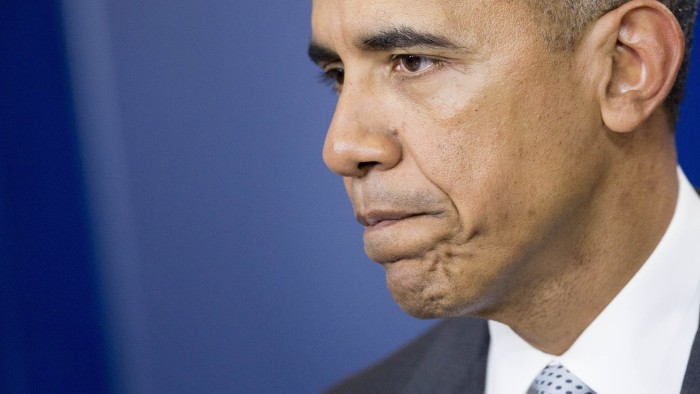Barack Obama leads G20 vow to step up fight against Isis

Roula Khalaf, Editor of the FT, selects her favourite stories in this weekly newsletter.
World leaders on Sunday vowed to step up the fight against Isis, amid calls for the west to rethink its relationship with Russia in the wake of this weekend’s devastating attacks in Paris.
US President Barack Obama said at a G20 meeting in Turkey that the “sky was darkened” over the gathering, whose usual economic agenda was upended by attacks that bring the death toll as a result of Isis action since October to 500 G20 citizens, stretching from Paris and Ankara to the desert of Sinai.
The two-day summit, which began on Sunday, is set to reiterate promises to improve co-operation against terrorism. Relations between the west and Russia have been strained by Moscow’s military campaign in Syria, which critics say is designed to support the regime of President Bashar al-Assad, not target Isis, which appears increasingly able to mount global operations.
But pictures of Mr Obama huddled in discussion with President Vladimir Putin of Russia hinted at the potential for effective action against Isis becoming an overriding necessity that will reconfigure the west’s relationship with Moscow. White House officials described the 35 minute talks as “constructive”.
Emerging pressures to revisit the Russia relationship were given voice by Nicolas Sarkozy, the former French president, who called for a “new policy” on Syria that put aside differences. “There cannot be two coalitions [against Isis] in Syria,” he said.
The global consequences

Terrorists strike at a sensitive time in the history of France and Europe.
Read on
Mr Putin’s spokesperson said it was too early to speak of a rapprochement but the Russian president — who quit last year’s G20 summit early after being scolded over Ukraine — has called for “unity” in the terror fight.
However, Moscow’s call was met with thinly disguised scorn by Donald Tusk, the EU Council president. “We need not only more co-operation but also more goodwill, especially from Russian action on the ground in Syria,” he said. “It must be focused more on Islamic State and not . . . against the moderate Syrian opposition.”
It remains to be seen whether France will be willing to rethink its staunch opposition to the Assad regime — which it sees as a cause of Isis’s rise rather than a partner in checking its power. Or, indeed, whether Mr Obama will show any willingness to wade deeper into a conflict that he is loath to see US forces sucked into.
If any bargain with Moscow over the fight against Isis is to emerge, it is likely to reflect the contours of an agreement in Vienna over the weekend, which sketched out a path for governance and elections in Syria, while leaving unanswered the most sensitive questions over the future of Bashar al Mr Assad.
While diplomats were surprised by the progress made in Vienna, there was little attempt to hide differences between the anti-Assad camp — including the US, France and Turkey — and Russia. Sergei Lavrov, Russian foreign minister, said that after the Paris attacks: “It doesn’t matter if you are for Assad or against him, Isis is your enemy, it’s not about Assad.”
Attempts to build an interim unity government, backed by a ceasefire between the more moderate opposition and the regime forces, would challenge Russia to adapt its operations on the ground.
If Moscow was to respond, John Kerry, US secretary of state, hinted at closer co-operation — on everything from intelligence sharing to military co-ordination — in a second phase of the international fight against Isis.
“Obviously, if we can co-operate and get the political process moving, it opens enormous possibilities for other co-operation which is much more effective and broader,” he said. “But we have to come at this in a way that makes certain of what we’re both undertaking.”
Comments